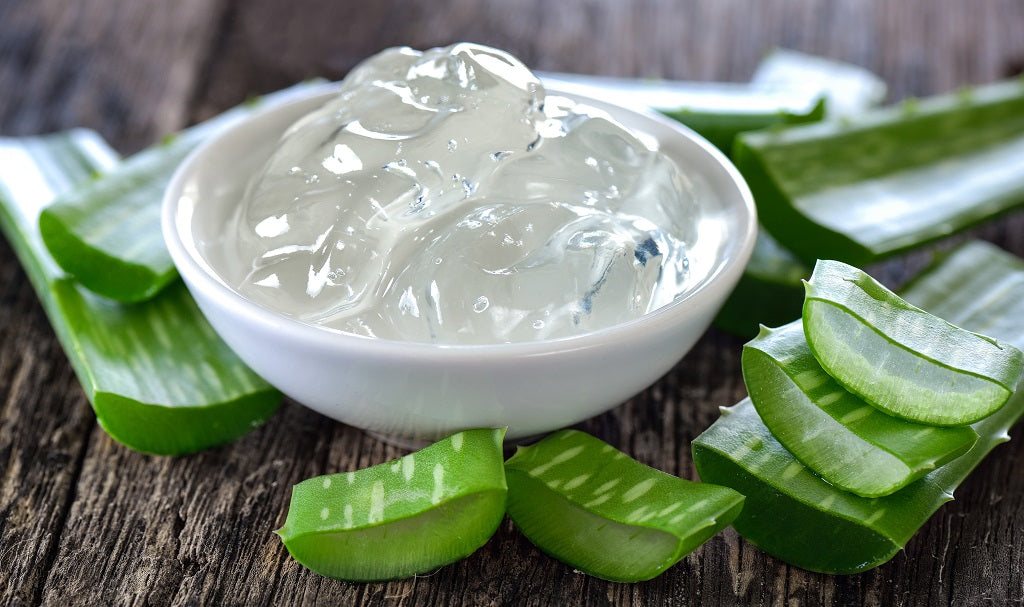Healthy and beautiful skin adds to your personality. But our modern lifestyle, busy schedule, pollution, climatic factors and hormonal changes to some extent makes it very difficult to achieve picture-perfect skin. Pimples and acne, are the most common skin problems that keep surfacing every now and then. This common skin condition keeps troubling men and women irrespective of their age group. Achieving a crystal clear skin may be a little difficult but not impossible. So if your skin is prone to acne and pimples, do not worry as nature has a solution to your problem - Rosehip Oil. It is the best, that nature can offer to heal your acne-prone skin. Keep reading to find out how to use Rosehip Oil for treating acne, pimples and scars to have a skin which is flawless, radiant and healthy.
What is Rosehip Oil?
Rosehip Oil or Rosehip Seed Oil is extracted from the wild rose bushes (Rosa Canina), which are usually found in mountainous regions of Chile. Rosehip Oil also known as Rosehip Seed Oil is pressed from the seeds and fruit of the wild rose plant once the petals have fallen off.
Also Read : Ingredients In Depth - Rosehip Oil
What is acne and How does Rosehip Oil work in treating acne?
Acne is caused when your skin becomes dehydrated and undernourished. Excessive use of chemical products on your skin can strip your skin off the natural oil leaving your skin dry and dehydrated. People with oily skin are more prone to acne. Excess intake of hot beverages and alcohol can also lead to frequent breakouts. When your skin becomes dry, the oil glands are compelled to produce more oil to help your skin from drying out. The excess production of oil/sebum is responsible for causing acne and pimples, as this excess oil gets clogged in the pores of your skin and causes breakouts in your skin.
Rosehip Oil is very beneficial for your skin as it not only helps to clear acne, scars and blemishes from your skin but also makes your skin tight, firm, radiant and more youthful. Let us understand how is Rosehip Oil effective in treating all your skin problems.
Rosehip Oil for Acne
Rosehip Oil is loaded with the goodness of vital nutrients such as Vitamin A, C and essential fatty acids which helps to nourish, replenish, revitalize your skin and helps to keep your skin flawless by clearing acne, scars and blemishes. Let’s find out as to how these nutrients in Rosehip Oil work together and make your skin more radiant and vibrant.
1. Vitamin A
Vitamin A or commonly known as Retinol is very effective in treating major skin problems. Vitamin A helps to repair the damaged skin, promotes blood circulation and controls the excess of oil production by the skin.
2. Vitamin C
Vitamin C is a natural antioxidant which protects the skin from damage caused by the harmful UV rays and other environmental factors. It helps to fight the free radicals which are responsible for breaking down skin cells which ultimately leads to breakouts. Its healing properties help to repair damaged skin cells. The high concentration of Vitamin C also boosts the production of collagen and elastin which helps to tighten the pores and makes your skin more firm. The increased production of collagen also helps in the regeneration of new skin cells which helps in the reduction of acne scars, hyperpigmentation and blemishes.
Also Read : Beauty Benefits Of Vitamin C Serum
3. Essential Fatty Acid
Rosehip Oil is rich in essential fatty acid such as Omega-6 which helps to repair damaged skin cells. Omega-6 helps to keep your skin well-nourished and hydrated as dry, flaky skin is more prone to acne.
How does it work?
Rosehip Oil is lightweight, non-greasy and a non-sticky oil hence does not make your skin oily. Rosehip Oil is loaded with incredible properties which help to heal the damaged skin cells, its antioxidants fight free radicals which are responsible for acne and pimples. It also prevents an excess of oil production by the skin as this excess of oil or sebum clogs the pores and causes the eruption of acne, pimples, blackheads and whiteheads. Rosehip Oil helps to nourish and moisturize your skin as dry and flaky skin can cause acne. It boosts the production of collagen which helps to tighten the pores and make your skin more tight and firm, thus reducing acne, wrinkles and fine lines. Topical application of Rosehip Oil helps in the regeneration process of new skin cells and effectively reduces scars, blemishes and hyperpigmentation. Rosehip Oil also helps to prevent any skin infection, thus protecting and nourishing your skin and making it visibly smooth, radiant, blemish-free and more youthful.
Also Read : 12 Incredible Benefits of Rosehip Oil For Skin
Choosing the Best Rosehip Oil
In order to reap all the benefits of this incredible oil, you should be aware that you need to use the pure and organic Rosehip Oil. Look out for the word ‘Cold Pressed’ on the label. Check the colour and consistency of this natural oil, as Rosehip Oil is generally red coloured which is lightweight and non-greasy. Natural Oils give their best only when applied in its purest forms. Rosehip Oil is regarded as the best and safest way to naturally treat acne-prone skin. Before buying the product check the ingredients, look out for any additives as these additives will do no good to your skin. It may just aggravate the situation. So be sure to choose the best brand which has Rosehip Oil in its purest form. Unlike Rose Oil, Rosehip Oil has a distinct smell making it easier for you to identify the pure and natural Rosehip Oil. We recommend adding Anveya's Rosehip Oil to your skincare regime.
ANVEYA ROSEHIP OIL,COLD PRESSED ORGANIC OIL,50ML
- Omega-3 and Omega-6 fatty acids in the Rosehip oil NOURISH THE SKIN & PROMOTE A YOUTHFUL APPEARANCE
- Discourages WRINKLES & FINE LINES.
- Anti-oxidant properties improve DRY & DAMAGED HAIR.
- Keep LIPS & NAILS healthy
Before application, make sure that you go through the instructions carefully and do a patch test to check for any allergic reaction.
How to use Rosehip Oil to Treat Acne and Scars?
A little goes a long way and the same is true with Rosehip Oil as well. You need just a drop or 2 of Rosehip Oil and that is enough to do the magic on the acne-prone skin. As Rosehip Oil is non-greasy and light, it gets easily absorbed into the skin. This oil easily penetrates deep into the layers of skin, heals the damaged skin by reducing acne scars, dark spots, soothes irritation and controls oil production, thus preventing further breakouts.
- Take 2-3 drops of Rosehip Oil into your palm, rub it into your palms and apply over the affected areas. Massage gently for 1 min. You can directly apply Rosehip Oil on your skin and dilution is not required.
- Rosehip Oil can be used as a carrier oil in combination with Tea Tree Oil in treating acne and scars.
- Alternatively, you can add a few drops of Rosehip Oil to your favorite moisturizer or night serum and then apply on the affected area.
- For best results, apply it twice a day. Make sure to use 100% pure Rosehip Oil.
Limitations of Rosehip Oil
- Always perform a patch test on your skin and check for any allergic reaction on the skin for the next 24 hours.
- Rosehip Oil can make your skin sensitive to sunburn, hence avoid going out in sun after applying Rosehip Oil or any Rosehip based skincare products.
- Care should be taken to apply Rosehip Oil in a very little amount as an excess of it can make your skin oily and aggravate the condition.
- It is always advisable to mix Rosehip Oil with a suitable carrier oil if your skin is highly sensitive.
- If you are already using any skincare product which is rich in Vitamin A or C, then you may experience skin irritation as too much of vitamin intake can be toxic for your skin.
- You should not use Rosehip Oil if you are allergic to this oil or any other plant in the Rosaceae family.
The best and safest way to incorporate Rosehip Oil in your daily skincare regime is to introduce it slowly and steadily.
Disclaimer: All the content on anveya.com/blogs is solely for information. It is not intended to be a substitute for professional medical advice, diagnosis or treatment. Always seek the advice of your physician or a qualified health care provider. The information, suggestion or remedies mentioned on this site are provided without warranty of any kind, whether express or implied.




